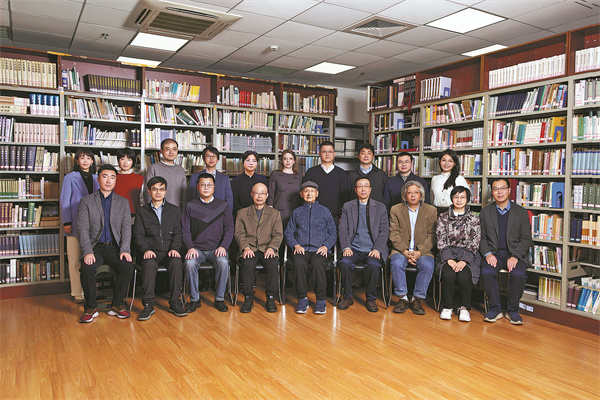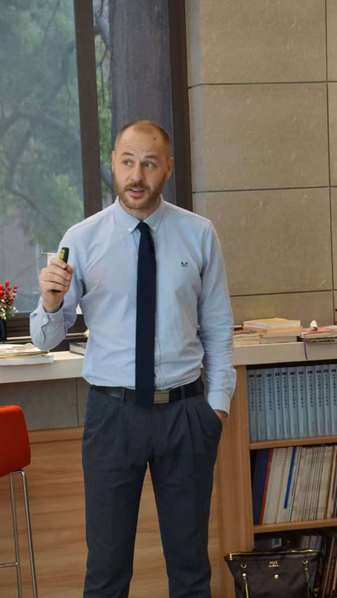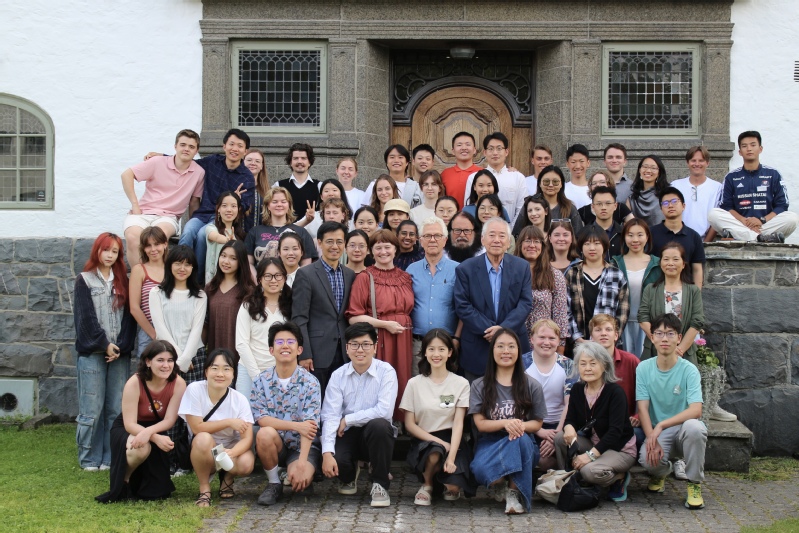
Group photo of NEWDAY participants and organizers
About a 100-minute train ride up north from Oslo stands the majestic town of Lillehammer. After a four-year hiatus, the NEWDAY – Nansen East-West Dialogue Academy program was relaunched this year.
This initiative, a collaboration between the Fudan Development Institute, the Fudan-European Centre for China Studies at the University of Oslo, and Nansen Academy, took place from July 30 to August 7.
The program gathered over 50 students from countries including China, South Korea, Norway, Sweden, Germany, and Serbia, alongside academic speakers from various disciplines. The participants were engaged in dialogues addressing global challenges and regional development issues, especially in the Nordic and East Asian regions.
Throughout the program, participants delved into topics such as the role of education in societal and political development, gender equality paradoxes, and social governance dilemmas. The program also featured interactive sessions and cultural activities enriching the participants’ understanding of Norwegian culture.
But what makes NEWDAY unique, as shown in its name, is “Dialogue”.
To Understand, not to Persuade.
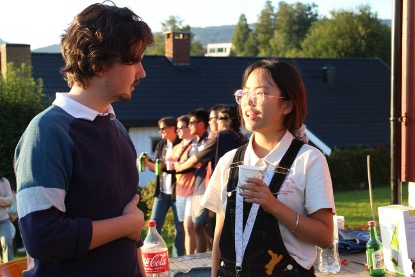
Chatting at a garden party
The concept of NEWDAY partly draws from the educational philosophy of the Nansen Academy and Folk High Schools in general, which is to “help find the inner light in people”. A significant portion of the program is dedicated to group discussions, panel dialogues, and small or informal talks, all aimed at fostering mutual understanding.
“The identity map exercise was particularly thought-provoking,” says KANG Su, a freshman majoring in French. The exercise she refers to is a dialogue hosted by the Nansen Centre for Peace and Dialogue, a well-known institution in conflict resolution.
In this exercise, students exchanged ideas with three different partners on the same topic of prejudice. “It made us reflect on what prejudice really means and the importance of avoiding value judgments,” Su explained.
Similar dialogues extended beyond the formal curriculum. “In the ‘Me and My Country’ exhibition, everyone gathered in small groups to share personal stories,” said ZHENG Tianyue, a freshman majoring in fintech. “These were just natural conversations, but they felt magical. We didn’t speak with the intention of persuading or changing anyone's opinion, but simply to help others understand.”
What’s the popular opinion on social media? How fierce is the competition in universities across different countries? Do people drink lots of coffee in China? Some questions were so thought-provoking that they even challenged the participants’ understandings of their own communities.
“I gained insights not only into Western perspectives but also into my own cultural identity,” said ZHANG Xinyue, a master’s student at the School of International Relations and Public Affairs (SIRPA), Fudan University.

Peace Dialogue
The mix of lectures and dialogues resonated well with most participants. “In the lecture on paradox, we learned that despite extensive gender-related policies and financial support, the root of patriarchy remains difficult to address,” said ZHU Xiaoyu, a freshman majoring in sociology.
According to her, subsequent discussions with students from Norway and other countries broadened her view on this issue. “They still face challenges in career choices, promotions, and family matters. This led me to think beyond equality on paper and consider issues related to social norms,” Xiaoyu added.
“Students developed strong relationships and trust, which is something we dream of but cannot easily achieve,” said Dr. Geir Helgesen, senior researcher at the Fudan Development Institute and co-founder of the NEWDAY program, at the program’s conclusion.
But however bright it seems, dialogue wasn’t always easy.
Dialogues could be hard, and they should be.
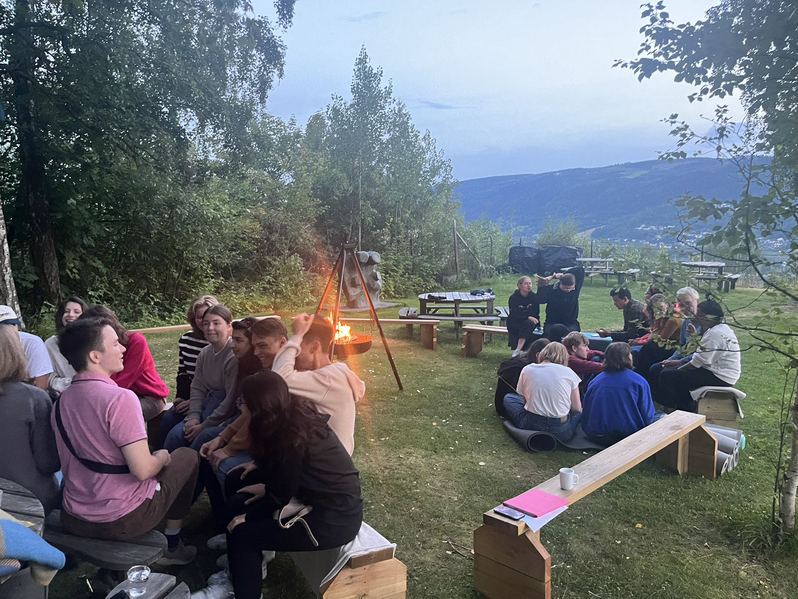 Gathering at Nansen Academy
Gathering at Nansen Academy
“Information cocoons cause conflicts,” said ZHANG Yang, a sophomore majoring in interpretation. “All of us have been fed biased stories, which results in inevitable differences in beliefs or even ideologies.”
Sitting in a cozy classroom in Lillehammer has already made a safe space more accessible than it is elsewhere. Nevertheless, obstacles exist. “A challenge with free dialogue is that it can easily become emotional and off-track,” commented SHEN Zhenqun, a doctoral candidate at SIRPA, Fudan University. Despite imperfections in the dialogue, he still acknowledged the willingness of most participants to listen.
“We encountered the mindset gap almost immediately,” says YU Yue, a freshman majoring in sociology. According to her, the vast difference in Western and Eastern mindsets influences people’s understanding, especially on certain political and socio-economic topics. “Everyone can be biased. How we were educated shapes who we are and how we think, which complicates dialogue and can make it defensive or even aggressive,” Yue explained.
All these concerns lead to one question: Is peaceful yet constructive dialogue realistic?
“We had concerns at the start. Most of the participants are academically outstanding, but how open-minded can they really be?” said Prof. LIU Chunrong, executive director of the Fudan-European China Research Centre at the University of Oslo and co-founder of NEWDAY. “It is challenging, but it turned out to be very satisfactory. These two combined makes it even more valuable.”
During the program, it became evident that despite the mindset gap, people have more in common than in difference. “We share the joy and tears over the same things, regardless of nationality, language, or race. And this brings hope,” Yue said.
“We put emotions into conversations and then bind each other with those feelings,” said JIANG Shaocheng, a recent graduate of the English-taught Master’s Program in International Public Policy at SIRPA. The effects might not be immediate, but they matter, and could be surprisingly influential in the future.
Differences are no obstacles when we’re friends.
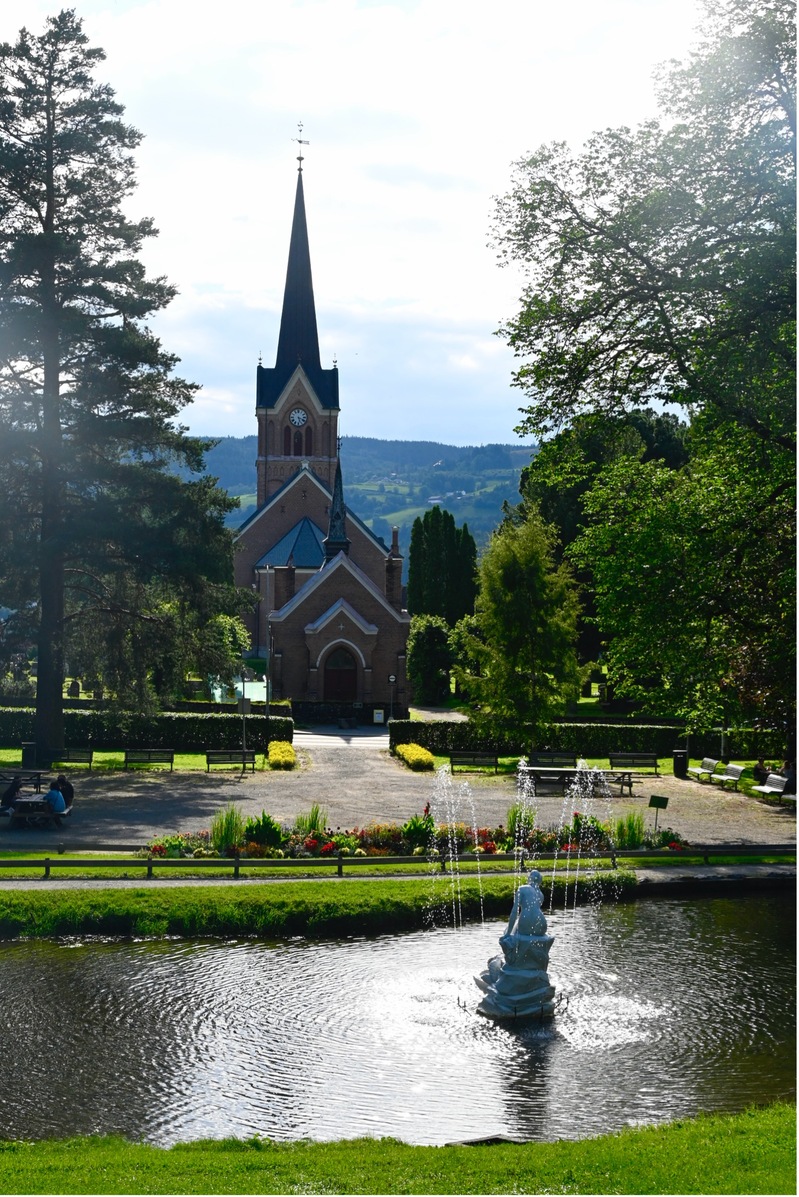
Lillehammer
Lillehammer welcomed participants with eight consecutive days of bright, clear skies, but turned moody on the final day.
“Everything flows naturally here—conversation, connection; there’s no pressure to engage. We talk and share simply because we want to, and that’s quite different from what you take away from regular lectures,” said LI Yaqi, a master’s student from the Fudan-Sciences Po double degree program.
Dr. Unn Irene Aasdalen, former principal of the Nansen Academy, likened NEWDAY to a drop of water in the ocean, encouraging students to spread the idea of dialogue and promote mutual understanding.
“Seek common ground rather than identical interests. Embrace differences rather than trying to eliminate them,” said CHEN Zipei, a junior majoring in philosophy.
Nine days may be brief, but long enough to forge lasting bonds.
NEWDAY ends, yet friendships linger.
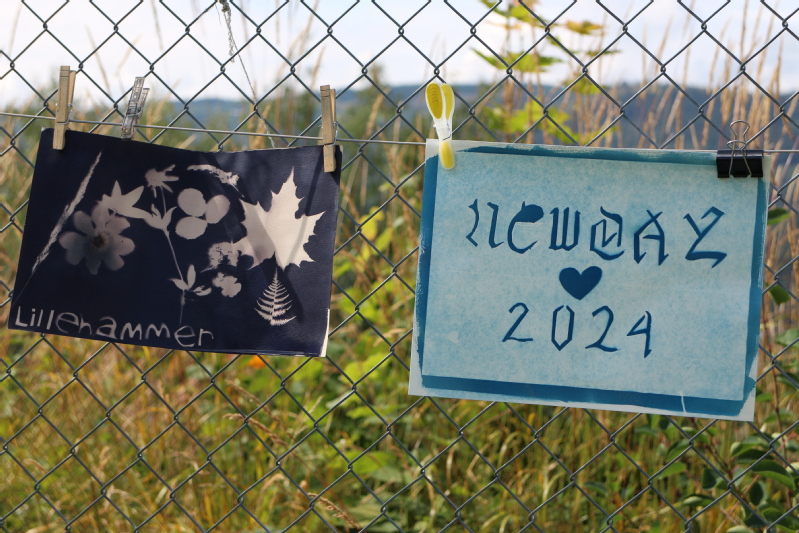
NEWDAY artworks by participants
(END)
Presented by Fudan University Media Center
Writer: WANG Jingyang
Photographers: ZHU Xiaoyu, WANG Jingyang
Editor: LI Yijie, Wang Mengqi



